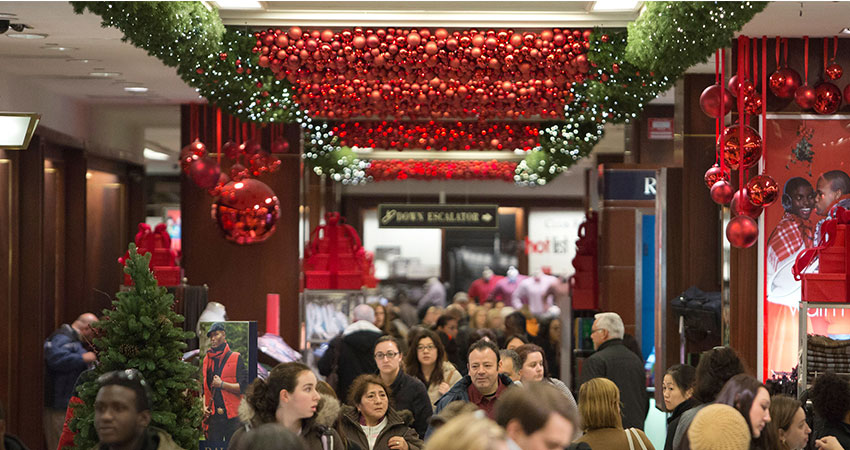Last year was a wild ride for retailers and shoppers that culminated in a holiday season unlike any we’d ever seen. If COVID was the giant beast in the foreground, there were plenty of other imposing creatures – supply chain issues, shipping delays, major changes in consumer shopping habits – lurking not so subtly in the background.
Now, with the pandemic lingering and most of us unsure of what “normal” looks like anymore, it’s a good time to consider what’s on tap for 2021 holiday shopping. Our survey of 1,082 U.S. adults reveals a fair amount about how consumers are approaching their shopping this year. Some themes remain from 2020 while a few new ones have emerged. Our best description of what to expect this time around? Let’s call it Unprecedented 2.0.
A few key trends to note…
An Early Start
Holiday shoppers are planning to get an extra-early start this year. How early? Well, by the time you read this roughly 37% will have already begun while a whopping 83% say they’ll get started before Thanksgiving. The early start isn’t entirely new. In past (pre-pandemic) years, the majority of shoppers got rolling well before Thanksgiving weekend. Having said that, our survey found that this year’s consumers are extra-eager to catch the proverbial worm.
Some 66% said they prefer to complete all their holiday shopping as early as possible and 30% say they’re starting earlier than last year. Despite shopping and pondering purchases early, consumers will still be out in force, both in person and online, on Black Friday and Cyber Monday. The vast majority of shoppers say they’re “likely” to shop on those two major shopping days for at least some of their holiday purchases.
An Even Split
Our consumer survey revealed that retailers should expect an almost even split this year between online and in-store shopping, a welcome sign that people are feeling safer about visiting brick-and-mortar store locations. Roughly 51% of respondents in the 2021 survey said they’d primarily shop online this year while 49% would prioritize in-store. By contrast, last year–with COVID-related apprehension levels peaking–a larger contingent (56%) expressed a preference for online. Progress.
Looser Purse Strings
On average, consumers plan to spend about 15% more on holiday shopping than they did last year, according to our survey. In raw numbers, that means spending an average of about $886 per person, up from $766 in 2020 and $738 in 2019. Given all the peaks and valleys of the last 18 months, that’s great news for retailers.
So, what are people buying? Consider it a comforting sign of returning normalcy that the top shopping categories are generally in line with pre-COVID years. Leading the way: some 58% of survey respondents plan to make apparel/clothing purchases. Also popular are gift cards (54%), toys (40%), small electronics (38%), food and beverage (36%), shoes (33%) and jewelry (32%).
A couple minor demographic notes of interest.
- Gift cards are an especially popular choice for older shoppers, with 75% of the 65+ crowd planning to purchase them this year
- Younger shoppers are prioritizing makeup and skincare products, with viral Instagram and TikTok products perhaps driving the 36% of 18- to 24-year-olds shopping this category
- More women than men are shopping for clothing this year but more men than women seem to be shopping for shoes
Upshot: What Consumers Want
It’s worth noting that, while people are spending more this year, they are not spending mindlessly. In fact, they are being quite deliberate and are keenly focused on deal-hunting. Three factors stand out in their thinking, according to our survey.
Deals: We asked consumers what they most wanted to hear about in the brand communications they receive. Their #1 answer? DEALS. This sends a clear message to retailers: tell shoppers about your discounts early so they can plan. In previous years, we’ve seen major retailers kick off pre-Black Friday sales as early as October. Last year, major retailers like Home Depot, Walmart, Target and Amazon launched select Black Friday deals throughout the month of November.
On-time shipping: The 2020 holiday season was characterized by major shipping delays. This year’s similar challenges, broad staffing issues and shortages of global shipping containers continue to give people pause. While most shoppers are confident their gifts will arrive in time this year, more than 40% remain “concerned.” That concern is helping to drive the early start we talked about earlier.
Free shipping: Hear ye, hear ye! Some 46% of shoppers are more likely to purchase from a retailer if they offer free shipping. Free shipping beats out price (45%) and loyalty programs (28%) when it comes to how consumers decide where to shop. In a world where customer-centricity is such a big talking point, retailers will want to take this to heart.
Wishing all our retailer friends a smooth and prosperous upcoming holiday season.
Lauren Cooley is SVP of Retailer and Brand Solutions for RetailMeNot

